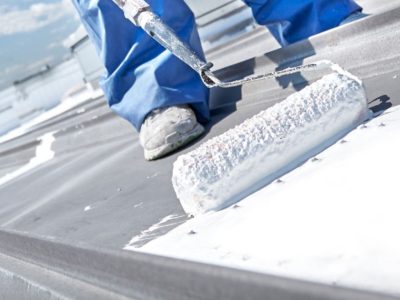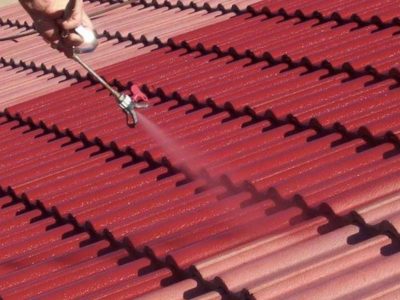Are you dealing with a clogged bathtub drain and wondering if you can use a drain cleaner to solve the problem? In this article, we will explore the safety of using drain cleaners in a bathtub, the different types of drain cleaners available, how they work, and the risks associated with using them.
We will also discuss alternative methods for unclogging your bathtub drain without the use of harsh chemicals. Keep reading to learn more about keeping your bathtub drain clear and functioning properly.

Can You Use Drain Cleaner In A Bathtub?
Using a drain cleaner in a bathtub is a common solution for clearing clogs and blockages in the plumbing system.
When dealing with stubborn bathtub clogs, opting for a drain cleaner can save you time and hassle. These products typically contain powerful chemicals designed to break down organic material, hair, soap scum, and other debris that accumulate in pipes.
It’s crucial to follow safety precautions diligently when using these cleaners. Always wear protective gloves and goggles to shield your skin and eyes from potential splashes. Make sure the area is well-ventilated to avoid inhaling harmful fumes. Understanding the chemical nature of drain cleaners can help you use them effectively and safely.

Is It Safe To Use Drain Cleaner In A Bathtub?
Safety is paramount when using drain cleaner in a bathtub due to the corrosive nature of the chemicals involved.
It is crucial to prioritize safety measures to protect yourself and prevent any potential harm. Before using the drain cleaner, ensure that you are wearing gloves and a mask to shield your skin and respiratory system from the strong chemicals. Carefully read and follow the product instructions and warnings provided by the manufacturer. These guidelines are designed to help you use the cleaner effectively while minimizing risks to your health and the surrounding environment. Take precautions to prevent any spillage or splashing that could lead to damage to the bathtub surface or plumbing system.
What Are The Different Types Of Drain Cleaners?
Various types of drain cleaners exist, including chemical, enzymatic, and homemade solutions, each offering a unique approach to clearing blockages.
- Chemical drain cleaners contain powerful substances like sulfuric acid or sodium hydroxide, designed to dissolve stubborn clogs such as hair, grease, and soap scum.
- Enzymatic cleaners, on the other hand, utilize natural enzymes to break down organic waste without causing harm to pipes.
Homemade solutions often involve ingredients like baking soda and vinegar, creating a foaming reaction that helps dislodge debris. While chemical cleaners provide fast results, they can be harsh on pipes and the environment. Enzymatic cleaners are gentler but may take longer to work, and homemade options offer a more eco-friendly and budget-friendly alternative, although they may require multiple applications for tough clogs.
Uncover more: How To Keep Kitchen Drain Clean
Chemical Drain Cleaners
Chemical drain cleaners are potent solutions designed to dissolve stubborn blockages in pipes through their acidic or alkaline properties.
When poured into a clogged drain, these cleaners work by reacting with the organic matter causing the blockage and breaking it down into smaller particles that can be easily rinsed away.
It is important to note that when using chemical drain cleaners, proper safety precautions must be followed to prevent accidents. This includes wearing protective gear such as gloves and goggles, ensuring adequate ventilation in the area, and never mixing different types of cleaners.
After using the cleaner, it is crucial to thoroughly rinse the pipes with water to remove any residue. Dispose of leftover chemicals according to local regulations, as improper disposal can harm the environment.
Users should be aware of the potential risks associated with these cleaners, such as skin and eye irritation, allergic reactions, or even more serious injuries if not handled properly.

Enzymatic Drain Cleaners
Enzymatic drain cleaners offer a more eco-friendly and non-toxic alternative for clearing blockages in pipes by using natural enzymes to break down organic matter.
These cleaners are gentle on the environment as they do not contain harsh chemicals that can harm aquatic life when washed down drains. By harnessing the power of enzymes, they effectively break down grease, hair, soap scum, and other organic materials that can clog pipes without causing any damage to the plumbing system. This not only helps in maintaining the health of the pipes but also prevents the need for harsh chemical treatments that can degrade the integrity of the plumbing over time, extending the longevity of the system.

Homemade Drain Cleaners
Homemade drain cleaners can provide a cost-effective and natural alternative to chemical solutions by using common household ingredients like vinegar and baking soda.
These DIY options are not only gentle on your pipes but also on the environment. By harnessing the power of natural ingredients, such as lemon juice and salt, you can effectively unclog drains without harmful side effects.
When applying homemade drain cleaners, remember to allow the mixture to sit for a period of time before flushing it with hot water to ensure maximum effectiveness. These eco-friendly solutions are safe to use around children and pets, making them a great choice for households looking to prioritize sustainability.

How Do Drain Cleaners Work?
Understanding how drain cleaners work is essential to effectively remove blockages and maintain clear pipes in your plumbing system.
Chemical drain cleaners typically contain strong alkaline or acidic compounds that react with the clogs to break them down into smaller, soluble particles. Enzymatic drain cleaners, on the other hand, contain bacteria or enzymes that digest organic matter causing the blockage. Homemade drain cleaners usually involve a combination of baking soda and vinegar, which create a foaming action to dislodge debris and dissolve grease buildup. Each type of drain cleaner targets specific types of clogs and works through different chemical reactions to effectively unclog pipes and keep the water flowing smoothly.
Chemical Drain Cleaners
Chemical drain cleaners use powerful acidic or alkaline formulas to dissolve clogs and obstructions within the plumbing system.
These corrosive properties make them effective in breaking down hair, grease, food particles, and other debris that cause blockages in pipes. It is important to handle these cleaners with caution due to their potentially harmful effects on skin and eyes. Manufacturers often recommend wearing protective gloves, and goggles, and following specific instructions to avoid accidental exposure. It is crucial to store these products securely, away from children and pets, to prevent any accidents. Prioritizing safety measures ensures that the powerful cleaning capabilities of chemical drain cleaners are used effectively and responsibly.
Enzymatic Drain Cleaners
Enzymatic drain cleaners utilize natural enzymes to break down organic matter and maintain the health of your pipes without harsh chemicals.
These specialized cleaners are designed to target the buildup of fats, oils, grease, and other organic materials that can clog drains over time. By harnessing the power of enzymes, they work by breaking down these substances into smaller, more manageable particles that can be easily flushed away. This not only helps to prevent blockages and backups but also contributes to the overall integrity of your plumbing system. The liquid form of enzymatic drain cleaners allows for convenient and efficient application, making it simple to pour directly into drains or toilets for effective results.
Homemade Drain Cleaners
Homemade drain cleaners leverage household ingredients like vinegar and baking soda to provide a safe and effective solution for clearing blockages in pipes.
- To apply homemade drain cleaners, begin by pouring a mixture of 1 cup of baking soda and 1 cup of vinegar down the clogged drain.
- Let the solution sit for at least 30 minutes to allow it to work its magic.
- Afterward, flush the drain with hot water to wash away the loosened debris.
The benefit of using natural ingredients like vinegar and baking soda is that they are non-toxic and environmentally friendly, unlike harsh chemical cleaners. By incorporating homemade drain cleaners into your routine maintenance, you can prevent clogs and keep your pipes clear and odor-free.
What Are The Risks Of Using Drain Cleaners In A Bathtub?
Using drain cleaners in a bathtub carries certain risks such as potential damage to the bathtub surface, harmful chemical exposure, and the risk of clogging pipes.
The chemicals in drain cleaners can be highly corrosive and pose a serious threat if they come in contact with the skin or eyes. Prolonged exposure or improper use of these products can lead to skin irritation, respiratory problems, and even chemical burns. If not used correctly, drain cleaners can interact with other substances in the pipes, potentially causing dangerous reactions or releasing toxic fumes. It is crucial to follow safety guidelines and consider alternative methods to prevent these hazardous scenarios.
Damage To Bathtub Surface
One risk of using drain cleaners in a bathtub is the potential damage to the bathtub surface, especially for materials like porcelain, enamel, or acrylic.
Chemicals found in many drain cleaners, such as sulfuric acid or sodium hydroxide, can cause corrosion or etching on the bathtub surface if not used carefully. Porcelain and enamel, for example, are particularly vulnerable to these harsh chemicals.
To prevent damage, it’s crucial to be aware of the compatibility of the cleaner with the bathtub material. Opt for drain cleaners that are labeled safe for the specific material of your bathtub. In addition, regular maintenance and using natural alternatives like baking soda and vinegar can help prevent the need for harsh chemical cleaners.
Harmful Chemical Exposure
Exposure to harmful chemicals in drain cleaners can pose serious health risks, requiring precautions such as wearing gloves, and a mask, and ensuring proper ventilation.
These cleaners often contain corrosive substances like sulfuric acid or sodium hydroxide, which can cause skin burns and respiratory issues if not handled carefully.
To further minimize exposure, always read and follow the manufacturer’s instructions, store the cleaners properly out of reach of children, and never mix different types of cleaners.
Adequate ventilation is crucial to dissipate fumes and reduce the risk of inhaling toxic gases, so it’s advisable to open windows or use fans during application.
Clogged Pipes
Using drain cleaners incorrectly may lead to clogged pipes due to incomplete blockage removal or improper application within the plumbing system.
This can exacerbate the issue by causing the chemicals in the cleaner to create a semi-solid mass that further obstructs the flow of water. It is crucial to follow the manufacturer’s instructions carefully to ensure that the cleaner is applied in the right quantity and allows sufficient time to work effectively.
Using the wrong type of drain cleaner for the specific blockage can also worsen the situation. To safely use drain cleaners, always wear protective gear like gloves and goggles, ventilate the area well, and never mix different cleaners together as this can produce harmful fumes.
Prioritize prevention by regularly maintaining your pipes and considering natural alternatives to harsh chemical cleaners whenever possible.
What Are The Alternatives To Using Drain Cleaners In A Bathtub?
When faced with a bathtub clog, several alternatives to drain cleaners exist, including using a plunger, drain snake, hot water flush, or seeking professional plumbing services.
- Plungers are a popular DIY solution for minor clogs, as they create suction to dislodge blockages.
- Drain snakes can effectively break up tougher clogs by hooking onto debris and pulling it out.
- A simple yet effective method is pouring a pot of hot water down the drain to dissolve grease and soap scum.
If DIY methods prove unsuccessful, hiring a professional plumber ensures a thorough and long-lasting fix, potentially preventing future clogs. It’s always wise to consider the severity of the blockage and choose the most suitable approach for a swift resolution.
Plunger
A plunger is a versatile tool that can effectively remove blockages in a bathtub by creating pressure to dislodge clogs within the pipes.
To use a plunger correctly, ensure the rubber cup is covering the drain completely. Press down firmly, then pull up quickly to create the suction needed to dislodge the blockage. Remember to repeat this motion several times until the clog is cleared.
To maintain your plunger, rinse it thoroughly after each use and store it in a dry place. The design of the plunger, with its rubber cup, allows it to create a seal around the drain, which helps to push or pull the blockage through the pipe effectively.

Drain Snake
A drain snake is a valuable tool for clearing bathtub clogs by navigating through pipes and dislodging obstructions, suitable for both metal and PVC pipe systems.
This versatile tool comes in various lengths and thicknesses to adapt to the specific requirements of different pipe materials without causing damage.
When using a drain snake, it’s crucial to start by removing the drain cover and inserting the snake into the drain opening, pushing it steadily while turning the handle clockwise. The snake will work its way through the pipe, breaking up and pushing out any hair, soap scum, or other debris causing the blockage.
Regular use of a drain snake can help prevent major clogs and maintain smooth water flow in your bathtub drain.

Baking Soda And Vinegar Mixture
A mixture of baking soda and vinegar can serve as a natural and chemical-free alternative to commercial drain cleaners, effectively breaking down clogs in the plumbing system.
When baking soda, a base, comes into contact with vinegar, an acid, a chemical reaction occurs that produces carbon dioxide gas and water. This effervescent reaction helps to dislodge and dissolve blockages, making it easier for water to flow through the drain.
To create this powerful combination, start by pouring about half a cup of baking soda down the drain, followed by half a cup of vinegar. Allow the mixture to fizz and work its magic for about 30 minutes before flushing the drain with hot water. Not only is this method cost-effective and efficient, but it is also environmentally friendly, as it eliminates the need for harsh chemicals that can harm aquatic ecosystems.

Hot Water Flush
A hot water flush can help dislodge minor bathtub blockages by using the heat and pressure of water to clear debris and maintain pipe cleanliness.
To perform a hot water flush in a bathtub, start by filling the tub with hot water, ensuring it covers the drain opening. Let the water sit in the tub for about 15-20 minutes to soften any buildup or debris. After allowing the hot water to work its magic, pull the drain plug and let the water flow through the pipes, carrying away loosened grime. This process can prevent blockages and keep your drains flowing smoothly.
For consistent maintenance, consider scheduling a hot water flush regularly, especially if you notice slow drainage. To prevent future clogs, use a drain strainer to catch hair and debris before they enter the pipes, and avoid pouring grease or large food particles down the drain.

Professional Plumbing Services
In cases of severe blockages or complex plumbing issues, seeking professional plumbing services for your bathtub can ensure efficient and comprehensive solutions.
Professional plumbers have the expertise and cutting-edge tools to accurately diagnose the root cause of the problem, whether it’s a stubborn clog or a faulty pipe. By hiring a professional, you can avoid the hassle of trying to troubleshoot the issue yourself, which can lead to further damage if not handled properly. Professional plumbers adhere to safety standards and regulations, giving you peace of mind that the repair work is done correctly.
Knowing when to call in a professional is crucial, especially when dealing with leaks, low water pressure, or recurring drainage problems.










Comments